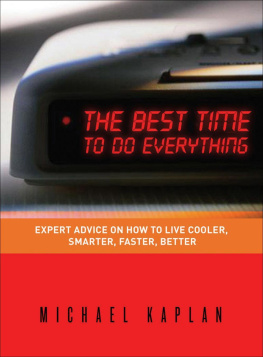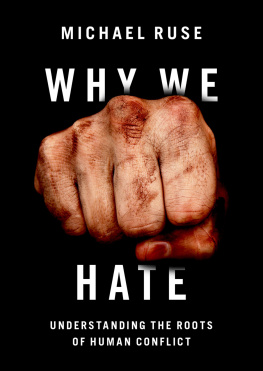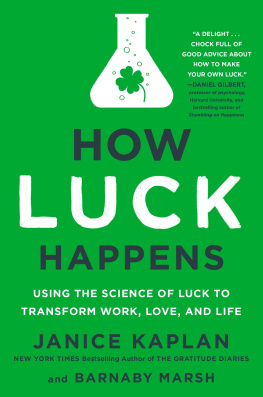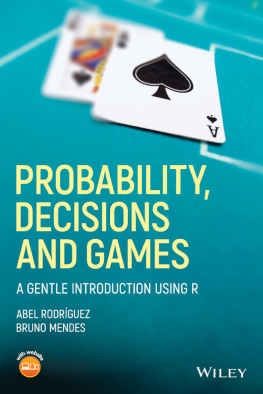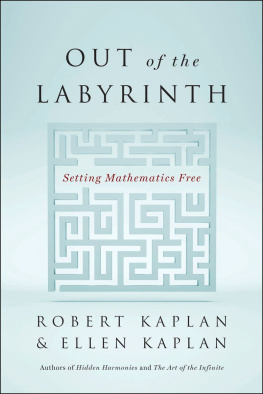All rights reserved.
You may not copy, distribute, transmit, reproduce, or otherwise make available this publication (or any part of it) in any form, or by any means (including without limitation electronic, digital, optical, mechanical, photocopying, printing, recording, or otherwise), without the prior written permission of the publisher. Any person who does any unauthorized act in relation to this publication may be liable to criminal prosecution and civil claims for damages. For information address Bloomsbury USA, 1385 Broadway, New York, NY 10018.
First U.S. Edition 2009
To find out more about our authors and books visit www.bloomsbury.com. Here you will find extracts, author interviews, details of forthcoming events and the option to sign up for our newsletters.
Truth has an uncorrupted kingly bloodline; yet our world seemspeopled with Errors bastards. Wrong thinking, reasoning that couldnever stand up to scrutiny, is universal and nearly constant. Why?Merely doubting is not a sufficient test to drive out error; nor is theclassical machinery of formal logic. The Baconian revolution, however,established the scientific method and gave us a way to putideasin any language, at any scalethrough the test of truthfulness.But this is a method we consistently fail to use in daily life, notjust because its a troublesome yoke, but because we dont naturallythink that way. So is it more natural to be wrong? Well see.

Stupidity does not consist in being without ideasthat would be thesweet, blissful stupidity of animals, molluscs and the gods. Humanstupidity consists in having lots of ideas, but stupid ones.
HENRY DE MONTHERLANT, Carnets
A DEMOCRACY OF DUNCES
Peopleother people, that ismake such stupid, easily avoided mistakes and never seem to learn from them. Try as you might to support the in apprehension how like a god theory of humanity, youre struck almost immediately by some counterexample that puts quintessence of dust back in the top billing. We may have been made in the divine image, but it was on Saturday night at the end of a long, hard week.
This puts us humans in the unique position of being constantly disappointed in ourselves, expecting a higher standard of reasoning and behavior than we ever actually achieve. Well, duh has become an accepted term in debate, presuming simultaneously that the truth will be obvious and that everyone will miss it. We easily spot and gleefully point out the fatuities of our opponentsand wonder, in lonely midnight hours, whether we ourselves are any less absurd. Error is democratic and egalitarian: go scrutinize the opinions of even the best educated, and you will find them still largely a patchwork of hearsay, authority, prejudice, and self-accommodation; basic illogicalities prevail alike in the labs of MIT as in the stands at World Wrestling Entertainment. Such universal dopiness (or, to give it its traditional name, vulgar error) is not just a matter of being mistaken about the unknownthrough excusable ignorance of string theory, say, or counterpoint, or Kierkegaard; no, its being bald-facedly wrong in familiar things we say and do every day. We shamelessly yield to impulse and invent reasons afterward. We impute motives to distant figures and events of which, despite the global wash of media, we really know almost nothing. We shift our grounds, making the same issue a matter of fact or of principle as it suits our local purpose (Im a true believer, so my beliefs must be true). We allow others to impose on us with slippery rhetoric and bogus statistics (all real Americans will support me; 200 percent lower prices!). We cower from difficult truths and cry after comforting illusions. And yet, astonishingly, here we still arethe masters of creation. For idiots, we have been remarkably successful: our grand entrances may start on a banana peel, our sweeping exits lead into a closet, but we are the stars of this show.
The problem, like most, goes back to Genesis. The Bible has human history begin with a blunder: coming to know, through a temporary lapse in divine discipline, the difference between right and wrong. That blunder was the parent of all subsequent faults, errors, mistakes, and gaffesbecause to know is to be allowed choice; and to choose is to have the option of choosing badly, assuming falsely, and indulging in all manner of specious self-justification. Since the exile from Eden, Right and Wrong have remained our intimate companions, presiding over every exalted and trivial thing we do, from declaring war to guessing the answer on game shows. Error is something that we both casually expect and find alarming to the point of apocalyptic despair.
As it happeneth to the fool, so it happeneth even to me; and why was I then more wise? Solomon was neither first nor last to worry about this: throughout humankinds triumphant progress similarly grim prophets have reminded us that our basic senselessness (now compounded by vast power) may soon lead us over the precipice. Yet despite these constant warnings we can never be sure exactly which of our many errors is the basic one, the fault we ought to tackle preferentially: meat-eating during Lent or not feeding the hungry? Sloth or excessive energy consumption? Our fractured family or our divided society? Its not surprising that, when the English Protestants first made confession public, they also had to make it all-encompassingly general: We have left undone those things which we ought to have done, and we have done those things which we ought not to have done, and there is no health in us. Well, its a start, at least.
Our dilemma may simply be a matter of probabilities: the intrinsic difference in likelihood between the one right way and many wrong ones. The path of righteousness is straight and narrow, but error can wander all over the plain. On one hand, we have the valid, the true, and the good: desirable ends, but only three. On the other, we have legion: bilge, bunk, and bosh; FUBB, FUBAR, and SNAFU; hokum, hooey, and humbug; rimble-ramble, whiffle-waffle, and yawp. Having set down our few commandments, we open myriad opportunities to screw them up.
This idea was given a sharp point by the Italian economist Carlo Cipolla in his essay The Basic Laws of Human Stupidity. Cipolla observed that the bad is statistically more likely than the good. Of the four categories of humanwhich he calls the helpless, the intelligent, the bandit, and the stupidthree are composed of people destined by character to cause harm to others, themselves, or both. Cipollas further laws establish that there is a constant irreducible proportion of stupidity in any human group (he includes college professors and Nobel laureates); that an observer will always underestimate the amount of stupidity in circulation and its power to do harm; and that the stupid person is the most dangerous of all, both because he does not intend the actual results of his actions and because stupid deeds by definition produce no benefit for anyone. Day after day, with unceasing monotony, one is harassed in ones activities by stupid individuals who appear suddenly and unexpectedly in the most inconvenient places and at the most improbable moments. The reader chuckles, but not overloudlythis is too familiar.


